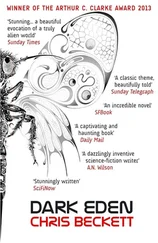THE FIRST DINNER that Stephen and I had together was a warm caponata salad in my loft: roasted eggplant and peppers and onions tossed on a bed of mesclun and served with perfectly round medallions of goat cheese. The man, it was clear, had usually eaten badly, both because he was single and because the parishioners who wanted to feed him were allergic to vegetables. While I was sautéing the eggplant in olive oil, he insisted on putting together a tray of hors d’oeuvres he had bought, and it was an angioplasty-inducing array of chips and cheeses and dips that seemed to belong in a frat house on Super Bowl Sunday. I didn’t really need it or want it, but it was very well intentioned. We drank a bottle of wine from Bordeaux that he had purchased on the walk around Manhattan we had taken that afternoon and that he said had always been a favorite vineyard of his father’s. I thought that was very sweet. Food is a gift and should be treated reverentially-romanced and ritualized and seasoned with memory. It was why I had wanted us to eat in rather than go to a restaurant or order something that someone else had made delivered to my home in greasy cardboard containers.
Stephen had arrived outside my apartment building around lunchtime that Saturday, and while he felt he was just dropping in out of the blue, I had suspected he would come. And yes, I had expected him that very day.
I almost told him that, but he would have thought I was mad-rather than merely eccentric, which I could see early on was the way he had pegged me. (He wasn’t the first.)
And I knew he was coming because I knew by then how much he needed me and I, in turn, needed him. I understood what my responsibilities were. I had known for almost a week, since I had arrived in Vermont. I was drawn to the Haywards’ story, but I was drawn as well to the newspaper photos of a young pastor whose eyes were themselves somber verse.
Certainly there were variables; there always are. I hadn’t planned on taking Stephen with me to Amanda’s home in the Adirondacks, I hadn’t anticipated introducing him to Norman’s wooden birds. But as I have matured, I have become increasingly comfortable with my place in God’s world and with my sense that I don’t have to understand everything-though, obviously, I am not perfect at this, and doubts find their way into my aura. I couldn’t save Stephen, as much as I wished that I could and wanted to try.
But that Saturday night when Stephen and I dined in my loft, eating by candlelight on the daybed with our plates in our laps, my mind was open and receptive to whatever was needed of me. I cannot always subsume my ego the way I know that I should, but that evening I did. I shouldered my wings and waited. For a month we were happy and in love. At least I was. I shouldn’t speak for him.
“HIT ME AGAIN, you drunken fool! Hit me again!”
Of all the things my parents hissed and screamed and snarled at each other over the years, it is the way my mother sneered those words at my father one Christmas Eve when Amanda and I were in elementary school that comes back to haunt me most often and compels me to pray to my angel for solace and peace. I was ten and Amanda was twelve, and neither of us believed any longer in Santa Claus. The four of us had been with friends of my parents’ for Christmas Eve, an annual gathering of four distant families that always involved massive amounts of drinking among the parents and desperately awkward silences among the children because we all went to different schools. Shortly after midnight my family left, and we were, as usual, the last to leave. In hindsight I have come to realize, my parents were always the last to leave because they were terrified of being alone together in that rambling house and especially in the confined space of the bedroom they were compelled to share.
Our drive home took about an hour, which was how long it would have taken if my father had traveled the two-lane roads at a steady, reasonable speed. Instead, however, as inevitably occurred when he was far too drunk to drive, he would creep along perhaps ten or fifteen miles below the posted speed limit and then accelerate wildly when my mother would say-her breath a nauseating and perhaps flammable blowtorch of Johnnie Walker scotch and Eve cigarettes-that he drove like a granny. A ninny. Or she would goad him on by telling him that she had to pee. And so he would accelerate. He would show her. He would drive like a wild man for the next three or four miles, the car careening across the double yellow line in the center of the black pavement or swerving off the shoulder so the side panels or the roof of the car would be brushed (or scratched) by the leafless tree branches. He would race at sixty and seventy miles an hour on those tortuous roads, decelerating abruptly only when he had narrowly avoided a collision with an oncoming car or he had navigated a turn with only the barest of clearances. That Christmas Eve we lost a hubcap from the right rear tire when he grazed a farmer’s old stone wall a good ten feet off the road-our white Cutlass Supreme traversing in a blink the frozen ground with its patches of rock-hard ice and snow-and I think only Amanda and I understood how close the call had been. (The next day it would be my grandmother, a guest at our house for Christmas, who would inform my parents that the hubcap was gone when she innocently asked them where it was. They were, as they were most Christmas days, enduring such excruciating hangovers that they didn’t even bother to venture outside to the driveway to take a look.) All the while Amanda prayed beside me in the backseat, her eyes squeezed shut and her lips silently moving. It has crossed my mind numerous times over the years that the only reason we survived that night was my sister’s terrified entreaties to either an angel or God.
When we got home, I presumed that the worst was over. Given my parents’ relationship, there was absolutely no reason to make that assumption. But I did. Amanda went directly to her room, and I went to the den to see if there was anything at all on television other than the Yule log: essentially a televised fireplace with Christmas carols in the background. My mother sat down with me on the couch and tried to wrap her arm around my shoulders, but that night I was resistant to her embraces. She tried to win me over with a remark about how only a year or two earlier I might have been putting out cookies for Santa and then racing upstairs to bed so I would be asleep when he arrived with his reindeer. But I was in no mood to try to add a patina to what had always been a childhood of Christmas Eves marked by my parents’ verbal and, on occasion, physical brawls. Quickly my mother sensed my frame of mind, and even though she was still very drunk, she left. She kissed me on the forehead and stumbled to her feet on shaky legs. She had kicked off her boots as soon as she had walked in the door, but even in her stocking feet she was having trouble negotiating the plush living-room carpet. And then, all alone, I clicked back and forth among the four or five television stations we had.
It was perhaps fifteen minutes later that my parents began to argue. I will never know precisely what triggered that one, but it really doesn’t matter. What matters is that soon after they started, I heard the sound of a great amount of glass shattering, and I knew it was the beveled mirror that was suspended by two oak arms above my mother’s dresser-a Victorian piece that I know now was well over one hundred years old. Then my father emerged from the bedroom and stomped toward the top of the stairs, where he paused for a moment at the balcony that ran perhaps fifteen feet along the corridor, his hands in fists at his sides as he surveyed the first floor. I gazed up at him, but our eyes never met and I wasn’t altogether sure that he had registered I was there on the living-room couch. He was still in the clothes he had worn that evening, though his shirt was untucked and the top three or four buttons were open. His T-shirt was the color of a peach. His wonderful, creosote-black hair, which had been slicked back at the party, looked now as if he had teased it with spaghetti tongs.
Читать дальше











